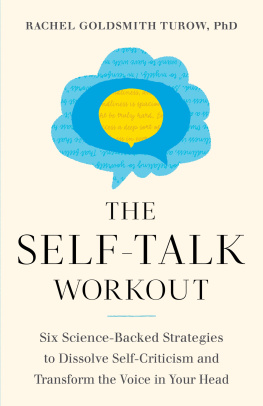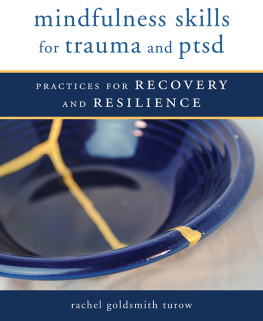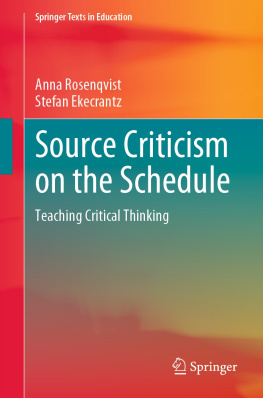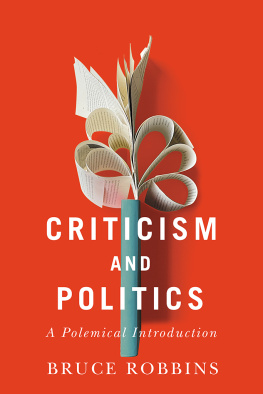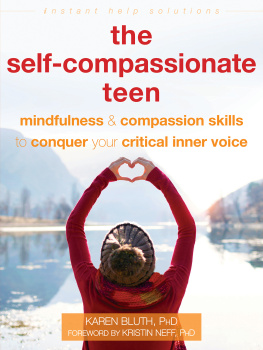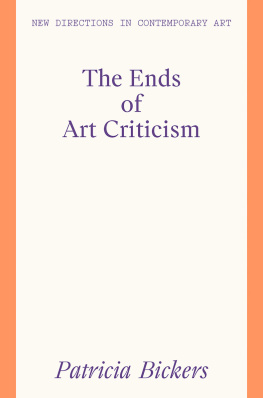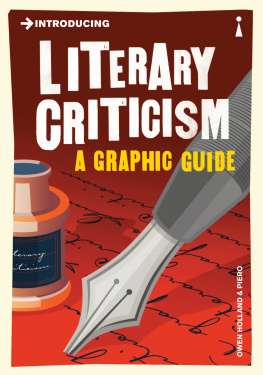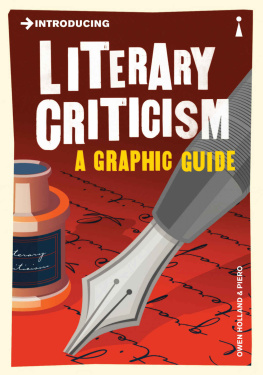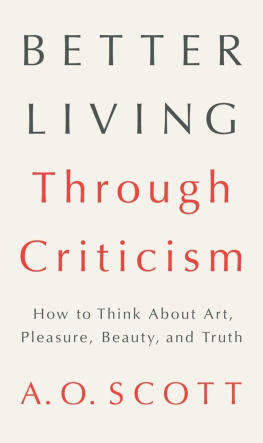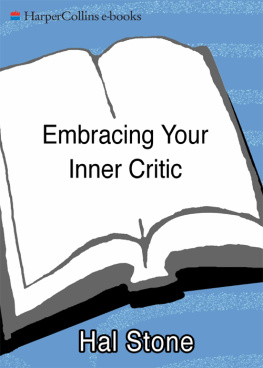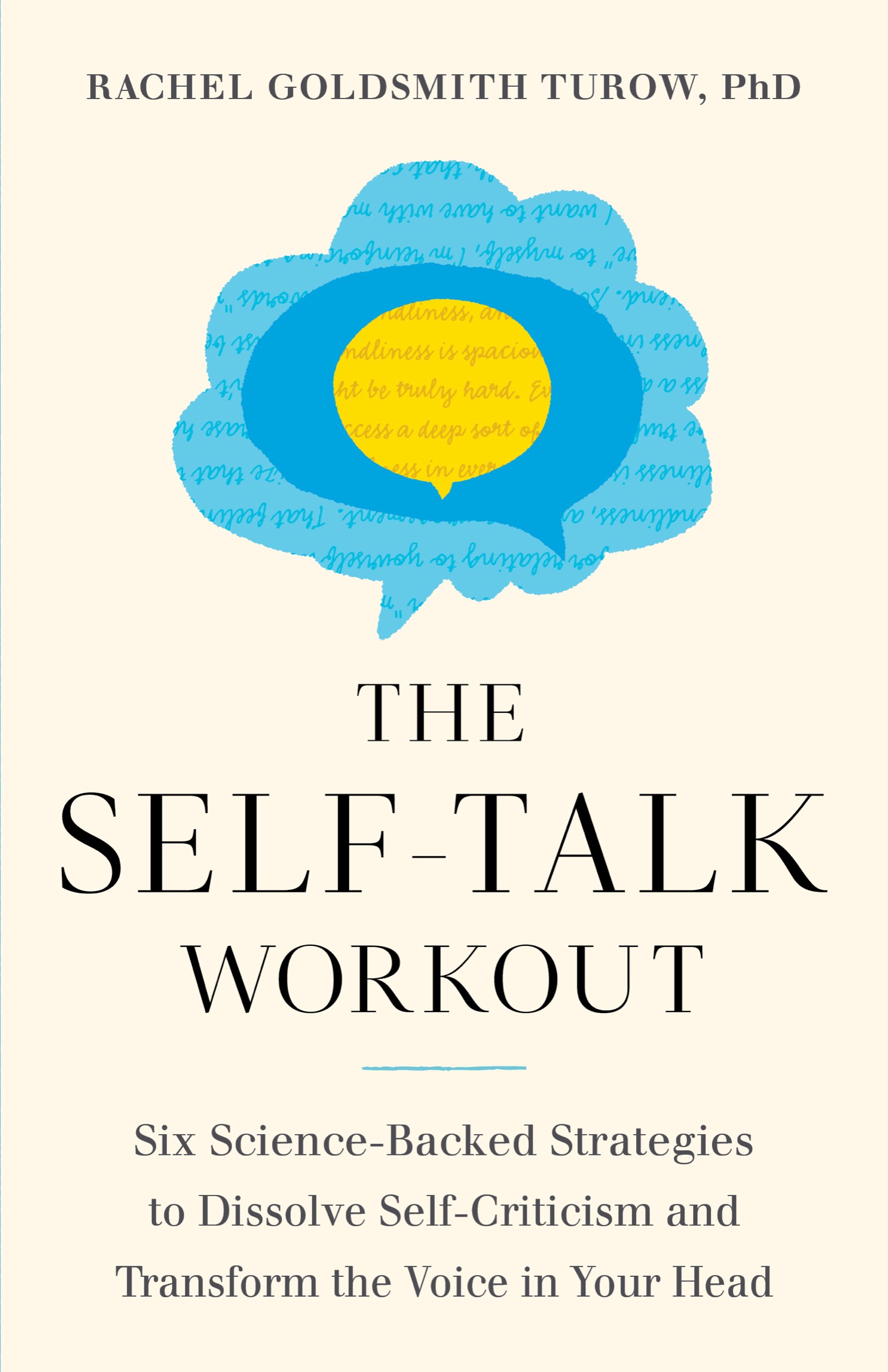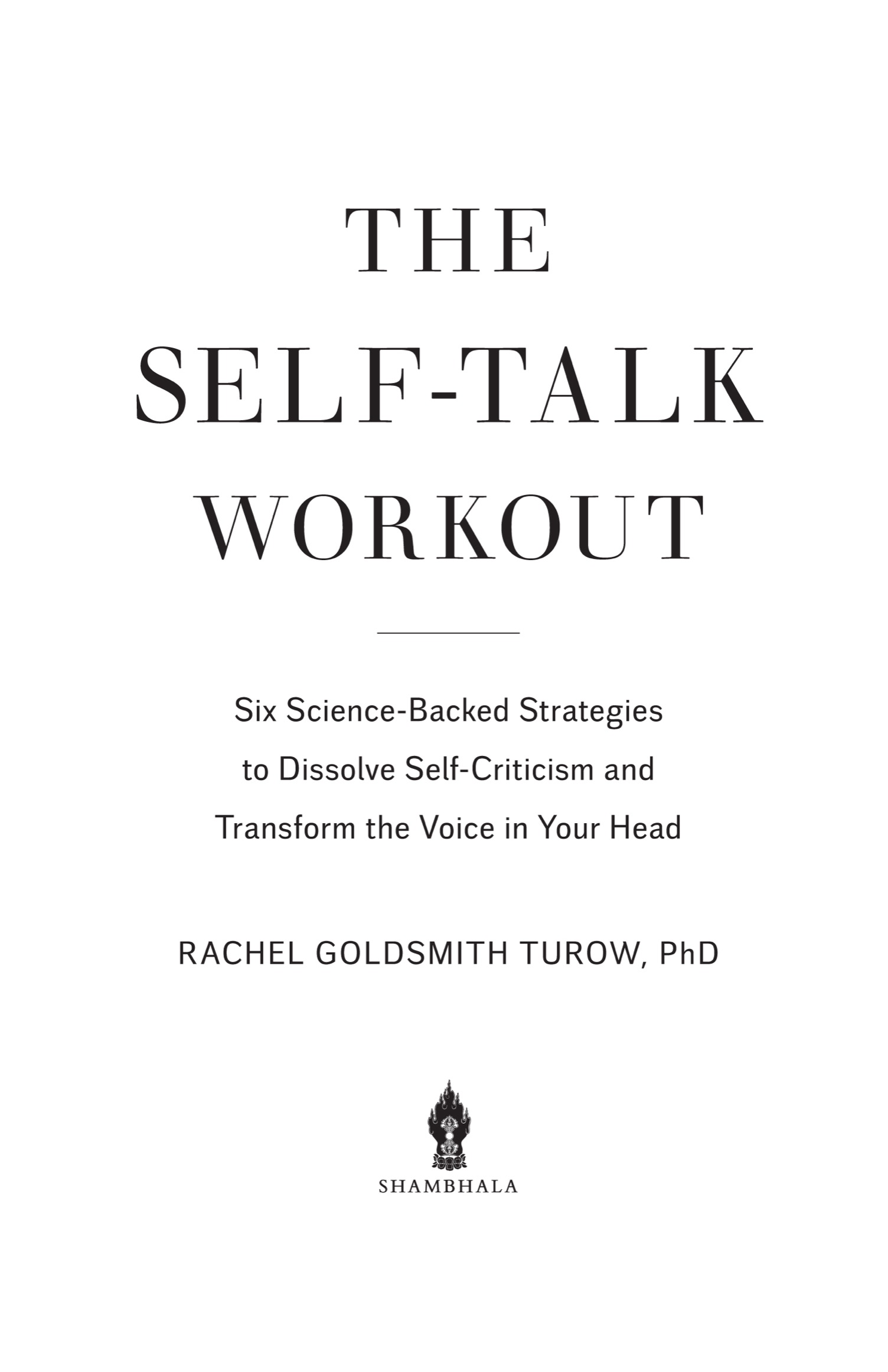Contents
Landmarks
Print Page List
If you have ever asked yourself Am I good enough? or thought I should be nicer to myself, then you will want to read The Self-Talk Workout. Rachel Turow has experienced and researched the effects of self-criticism, and her book is written with compassion and a basis in science.
SHARON SALZBERG
author of Lovingkindness and Real Change
Given the prominence of our inner voice in the economy of our mental life, it is very fortunate that we can turn to Dr. Turows wise and compassionate guidance. Some words simply jump off the page and you can taste the relief contained in these practices. Dr. Turow demonstrates that our inner life is more malleable than we assume, and even a little more freedom around our self-talk can make an enormous difference in our lives.
MATTHEW BRENSILVER
author of Teaching Mindfulness to Empower Adolescents
In The Self-Talk Workout, Rachel Turow provides an accessible, sustainable, and scientifically backed process to understand and to skillfully work with the voice within that causes us so much suffering. Turows comprehensive examination of the origins and impact of self-talk on the many aspects of our livespersonally, socially, and globallybehooves us to take action with wisdom and compassion for the benefit of ourselves and all beings. And Rachel is a phenomenal writerclear and easy to follow.
LA SARMIENTO
guiding teacher of the Insight Meditation Community of Washington BIPOC and LGBTQIA+ Sanghas
Shambhala Publications, Inc.
2129 13th Street
Boulder, Colorado 80302
www.shambhala.com
2022 by Rachel Turow
Cover art: Tokumiyanuts/Shutterstock
Cover design: Daniel Urban-Brown
Interior design: Kate Huber-Parker
All rights reserved. No part of this book may be reproduced in any form or by any means, electronic or mechanical, including photocopying, recording, or by any information storage and retrieval system, without permission in writing from the publisher.
Shambhala Publications is distributed worldwide by Penguin Random House, Inc., and its subsidiaries.
Library of Congress Cataloging-in-Publication Data
Names: Turow, Rachel Goldsmith, author.
Title: The self-talk workout: six science-backed strategies to dissolve self-criticism and transform the voice in your head / Rachel Turow.
Description: Boulder, Colorado: Shambhala, [2022] | Includes bibliographical references and index.
Identifiers: LCCN 2021055428 | ISBN 9781611808483 (paperback; alk. paper)
eISBN 9780834844513
Subjects: LCSH : Self-talk. | Criticism, Personal. | Self-acceptance.
Classification: LCC BF697.5.S47 T87 2022 | DDC 158.1dc23/eng/20211217
LC record available at https://lccn.loc.gov/2021055428
a_prh_6.0_141928383_c1_r0
For Jon, Oriana, Felix & Joshua
CONTENTS
ACKNOWLEDGMENTS
I am grateful for the many teachers, friends, students, patients, colleagues, and mentors who shaped my self-talk perspectives. Thanks to Matt Zepelin for your guidance, reflections, and patience during this process; and to Lindsay Edgecombe for supporting this idea. I received valuable input on earlier drafts from Marie Leznicki, Julie Schnur, Rebecca Neipris, Kristina Visscher, and Jon Turow. Kristin Kane and Melanie Langlois have been my self-talk companions, helping me develop and live these practices over the past several decadesthank you. Im grateful for the support and enthusiasm that I received from Andrea MacDowell, Alyson Bingham, Miriam Hodges, Amelia Romanowsky, L Barbour, Yelena Neuman, Steven Neuman, Rachel Esguerra, Adrian Esguerra, Jen Thompson, Danielle Abbott, Elisa Mandell Keller, Jessica Marshall, Therese Huston, Victoria Dailey, my parents, my in-laws, and my aunt Jane. Thanks also to Roger Jackson for explaining the historical contexts of some of these practices, and to Seattle University for supporting my teaching them in the present. I received a fellowship through the Hemera Foundation for a residential meditation retreat, where I deepened several aspects of my own practice. Im very grateful to Dalila Bothwell and to my Mindfulness Meditation Teachers Certification Program sangha for nourishing my practice over the past several years. Thank you to Jon, Oriana, Felix, and Joshua, who allowed me to devote attention to this book amid everything else. Finally, I deeply appreciate the many students, friends, and others who so generously shared their self-talk experiences with me, and who allowed me to include them in this book.
Introduction: Self-Talk
AS A CHILD in the 1980s, I would hear Whitney Houstons song The Greatest Love of All and feel confused. The greatest love of all sounded accidental and mysterious: the words expressed that the love was happening to her, but they also hinted that some sort of process was involved: The greatest love of all / Is easy to achieve / Learning to love yourself / It is the greatest love of all. But how was I supposed to learn to love myself when I felt pretty much the opposite? Good for Whitney, I thought, but I remained baffled by the idea that it was easy to start liking or loving yourself, as though choosing that attitude were as simple as putting on a new outfit.
I carried right on disliking myself, which took the form of constant self-criticism. It was easy to do. Academic, extracurricular, and social settings each emphasized peer comparisons, and there were always plenty of people who were smarter, more talented, more attractive, and cooler than I was. Self-criticism seemed like it might help me to identify and fix my flaws, to keep me motivated to improve, and to become more acceptable to myself and to others. Instead, the habit of self-criticism depleted me, leaving me worried and discouraged. When I finally wanted to develop more encouraging self-talkthe way that I treated myself inside my own mindI didnt know how to do it.
After experiencing a great deal of painful self-criticism as a child and as a young adult, I am lucky to have had a combination of personal and professional experiences over the past couple of decades that led me to form a completely different relationship with the voice in my head. Today, Im a clinical psychologist, which means that Ive had the privilege of sitting with hundreds of patients and observing the ways that their self-talk operates and improves. Im also a research scientist, which means that when I hear a claim about a way to transform self-talk or improve mental health, I hold off suggesting it to other people unless I find some quantitative evidence that it works. I want to make sure that the approaches that I recommend reflect well-designed scientific studies demonstrating their effectiveness for a majority of people. (Show me the data!) And Im a person who meditates, which means that Ive practiced different ways of relating to myself, my thoughts, and my feelingsover and over. In my experience, practice is fundamental. My self-talk didnt improve through insight or willpower but through the repetition of healthier practices.
Being kind toward yourself can seem both essential and elusive. I often hear people remark, I should really be nicer to myself, but also convey uncertainty about how to get there. The habit of self-criticism is often extremely strong; its often too pernicious to adjust through good intentions alone. People commonly criticize themselves many times a day for a span of years or decades, to the point where they regard self-criticism as a fixed characteristic (Im my own worst critic).

